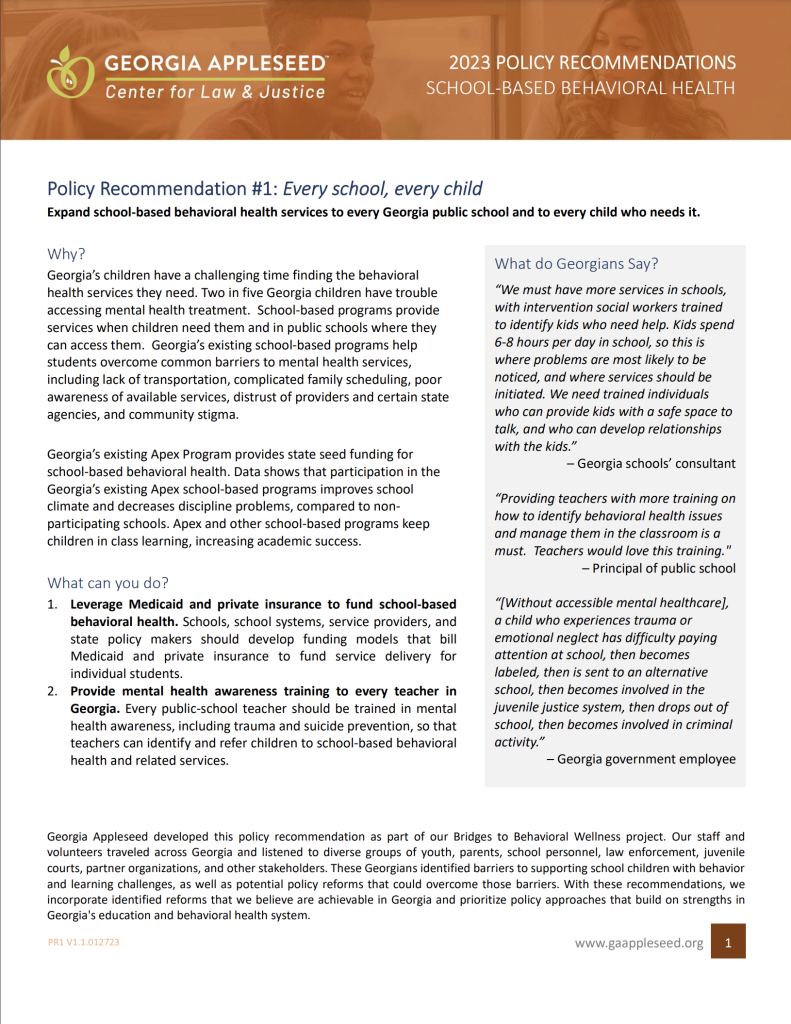Policy Recommendations: School-Based Behavioral Health
Our pragmatic legislative priorities and policy recommendations aim to support school-based behavioral health.
Georgia Appleseed developed policy recommendations as part of our Bridges to Behavioral Wellness project. Our staff and volunteers traveled across Georgia and listened to diverse groups of youth, parents, school personnel, law enforcement, juvenile courts, partner organizations, and other stakeholders. These Georgians identified barriers to supporting school children with behavior and learning challenges, as well as potential policy reforms that could overcome those barriers. With these four recommendations, we incorporate identified reforms that we believe are achievable in Georgia and prioritize policy approaches that build on strengths in Georgia’s education and behavioral health system.

